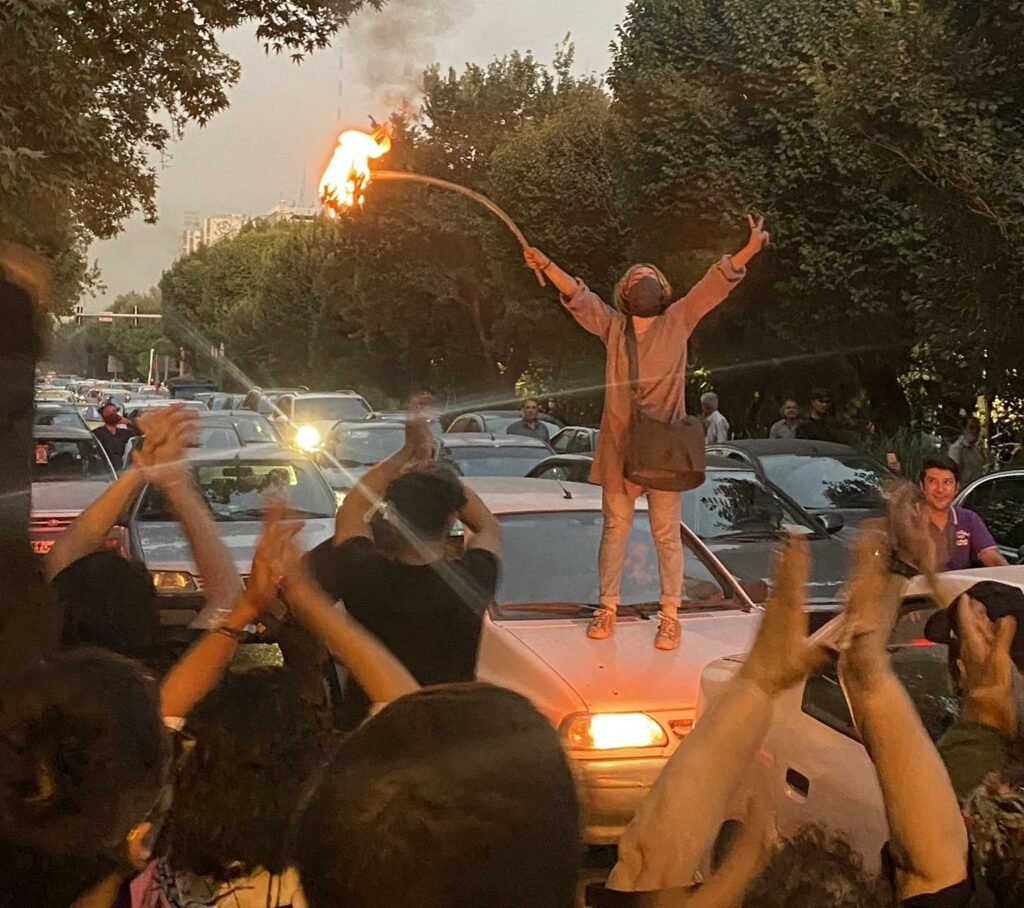A protest will be staged Friday evening in front of the Iranian Embassy in Brussels to show support for women in Iran objecting to the compulsory hijab.
The move comes as protests are sweeping Iran and women are burning their headscarves following the death of 22-year-old Mahsa Amini last week. Amini was detained by Iran's "morality police", as she was perceived to wear the headscarf "improperly" and then died.
There are reports that she was beaten on the head with a baton and her head was banged against the vehicle by the police, according to the United Nations. Iranian authorities have claimed she died of natural causes but her family said that she was previously healthy.
"Mahsa Amini’s tragic death and allegations of torture and ill-treatment must be promptly, impartially and effectively investigated by an independent competent authority that ensures that her family has access to justice and truth," said UN High Commissioner for Human Rights Nada Al-Nashif.
Al-Nashif stressed that the UN had received reports of "numerous, and verified, videos of violent treatment of women" as Iran's morality police have expanded their controls on the streets recently to suppress women thought to be wearing "loose hijab".
"The authorities must stop targeting, harassing, and detaining women who do not abide by the hijab rules," she said, urging these rules to be appealed.
Demonstrations
Thousands of demonstrators have taken to the streets in several cities across Iran, such as Tehran, Isfahan, Karaj, Mashhad, Rasht, Saqqes and Sanandaj, to protest Amini’s death.
Security forces have reportedly responded with live ammunition, pellet guns and teargas. At least two people are said to have been killed, several injured, and many arrested, according to the UN.
Iranian President Ebrahim Raisi of Iran ignored the protests sweeping the country when addressing the United Nations General Assembly on Wednesday. Instead, Raisi said that Iran is a model for justice; he condemned Western countries for upholding sanctions against Iran.
Iran's hijab laws
Following the Iranian revolution in 1979, authorities made it compulsory for all women to wear a headscarf as well as loose-fitting clothing to hide their figures in public areas.
Morality police patrol the streets to enforce the authorities' interpretation of "decent" clothing. The police can stop women to determine if they are showing too much hair, if their clothing is too tight or short, or if they are wearing too much make-up. Violating the rules include punishments such as fines, prison or flogging.

